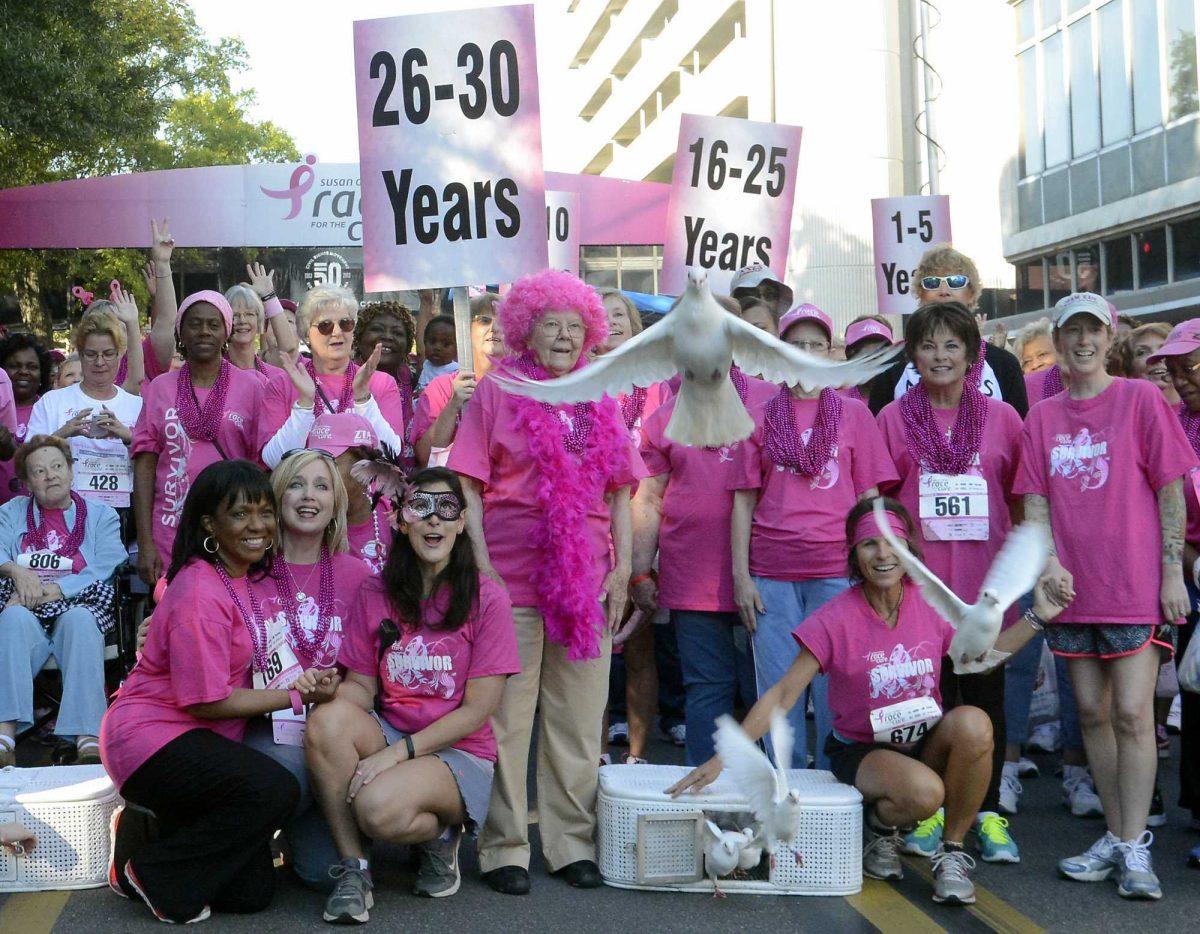It’s October again, and we all know what that means — witches and ghouls and all things spooky.
Including female objectification disguised as philanthropic behavior.
That’s right, it’s national Breast Cancer Awareness month, which means “I Love Boobies,” “Save the Ta-Ta’s” and similar slogans will be printed on everything.
I’ll applaud a few apartment complexes and businesses around town that sport the refreshing, “Geaux Pink and Fight Cancer” campaign, but the not-so-female-friendly plastic bracelets and bumper stickers I’ve noticed some LSU students displaying leave a sour taste in my mouth.
Surely, these are all signs that we live in a community which supports its females. We just want them to know that they are not alone in their fight against breast cancer, right?
Wrong. These campaigns aren’t aimed at the women who are battling breast cancer, and they certainly aren’t rooting for a good cause.
I know what you’re all thinking: it’s just a bracelet, get over it.
More than 200,000 American women will be diagnosed with breast cancer this year alone. Those women will all face with the choice to remove their breasts, which we are taught to value ourselves for, or to die from cancer.
And what advice are we giving them?
To “Save the Ta-Ta’s” because we live in a society that “loves boobies.”
Female breasts have a history of making for great advertising, and it seems like companies are taking advantage of this convenient way to sneak sexual objectification of women into advertising, under the cover that they are supporting them.
Perhaps the most insulting is the recent development of Mike’s Hard Pink Lemonade, which is packaged with a bright pink ribbon — almost bright enough to cover up the American Cancer Society’s statement that, “alcohol use is clearly linked to increased risk of breast cancer.”
Barbara Brenner, former executive director of Breast Cancer Action, responded by saying that Mike’s Hard Lemonade “should be ashamed of themselves.”
While companies are looking at this new way to profit off of the marketable value of breasts, these campaigns are only escalating the idea that a woman’s value and worth comes from her appearance — namely, her breasts.
For all of you who claim these campaigns are harmless, I’ll remind you of an event that took place over the summer.
At the age of 38, Angelina Jolie received a preventative double mastectomy, after finding out she carried a gene which increased her chance of contracting breast cancer to almost 90%.
The backlash to this was nasty but exactly what is to be expected. Some mentioned that it was a shame that the world had lost such a fine pair of breasts, while others warned Jolie that Pitt might be running back to Jennifer Aniston now that she had her breasts removed. Someone even took it upon themselves to announce the end of her career.
You may notice that these all have to do with the breasts that were once attached to Jolie and the worth that society attached to her breasts.
But Jolie responded to these comments with ease, speaking of how losing her mother to ovarian cancer in 2007 gave her new insight, as she didn’t want her children to worry about losing their mother to cancer.
My hope is that women will continue to make the right choices for them, regardless of what society, or a tacky plastic bracelet tells them.
The only thing that should be focused on supporting my breasts is my bra. If you really want to make women feel better while they’re fighting for their lives, let them know that they are valuable because of who they are, not because of their breasts.
Opinion: Support the women, not the ta-tas
By Jana King
October 13, 2013
Cancer survivors release doves before the Susan G. Komen North Central Alabama Race for the Cure for breast cancer in downtown Birmingham, Ala., Saturday, Oct. 12, 2013. (AP Photo/ AL.com, Mark Almond)








